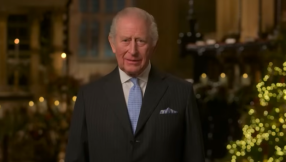Christians in Europe are more likely to oppose immigration and express anti-Muslim and anti-Jewish views than non-religious groups, a major new survey has found.
Both regular churchgoers and non-practising Christians are more likely to say immigrants are dishonest and not hardworking than non-religious people.

The findings are based on more than 24,000 interviews across 15 countries in Western Europe by the Washington-based Pew Research Center.
The study found a strong link between religion and nationalist sentiments. Although most Western Europeans are willing to accept Muslim and Jews into their area, both church-attending and non-practising Christians are more likely than religiously unaffiliated adults to voice anti-immigrant and anti-minority views.
In the UK 45 per cent of church-going Christians say Islam is fundamentally incompatible with British values and culture, as do 47 per cent of non-practising Christians. However among religious 'nones' — those who do not identify with a particular faith — only 30 per cent agree.
Christians generally were more in favour of reducing immigration levels than the population in general, whereas religious 'nones' tended to be less supportive of reducing immigration, it found. For example in Italy, 63 per cent of church-going Christians want to cut immigration, compared to 51 per cent non-practising Christians and 36 per cent on non-religious adults. Among the overall Italian population 52 per cent want to reduce immigration.
Although the survey largely focused on attitudes to Muslims, it also unearthed strains of antisemitism in European Christianity. It found that Christians at all levels of religious observance are more likely than religiously unaffiliated adults to say they would not be willing to accept Jews in to their family. Christians are also more likely than non-religious people to agree with anti-Jewish statements such as 'Jews always pursue their own interests, and not the interest of the country they live in'.
The wide-ranging survey explores other issues around Christian identity, secularisation, attitudes toward Muslims and Jews and opinions about immigration. It said the Europe has become one of the world's most secular regions. While most adults still consider themselves Christian, non-practising Christians — which Pew defines as those who identify as Christians, but attend church services no more than a few times per year — make up the largest population share across the region. In the United Kingdom, for example, there are roughly three times as many non- practising Christians (55 per cent) as there are church-attending Christians (18 per cent).
'Vast majorities in every country surveyed say they know either "some" or a "great deal" about the Christian religion and its practices, including majorities of adults in Norway (62 per cent) and Ireland (56 per cent) who say they know a "great deal" about Christianity,' Pew's lead researchers, Neha Sahgal and Alan Cooperman, said in the report.
'But in most countries, people tend to say they know "not too much" or "nothing at all" about the Muslim religion and its practices (median of 63 per cent), or the Jewish religion and its practices (median of 67 per cent).'
The survey does not include eastern European countries such as Poland and Hungary but focuses on Western European countries including the UK, France, Germany, Spain and Italy.













